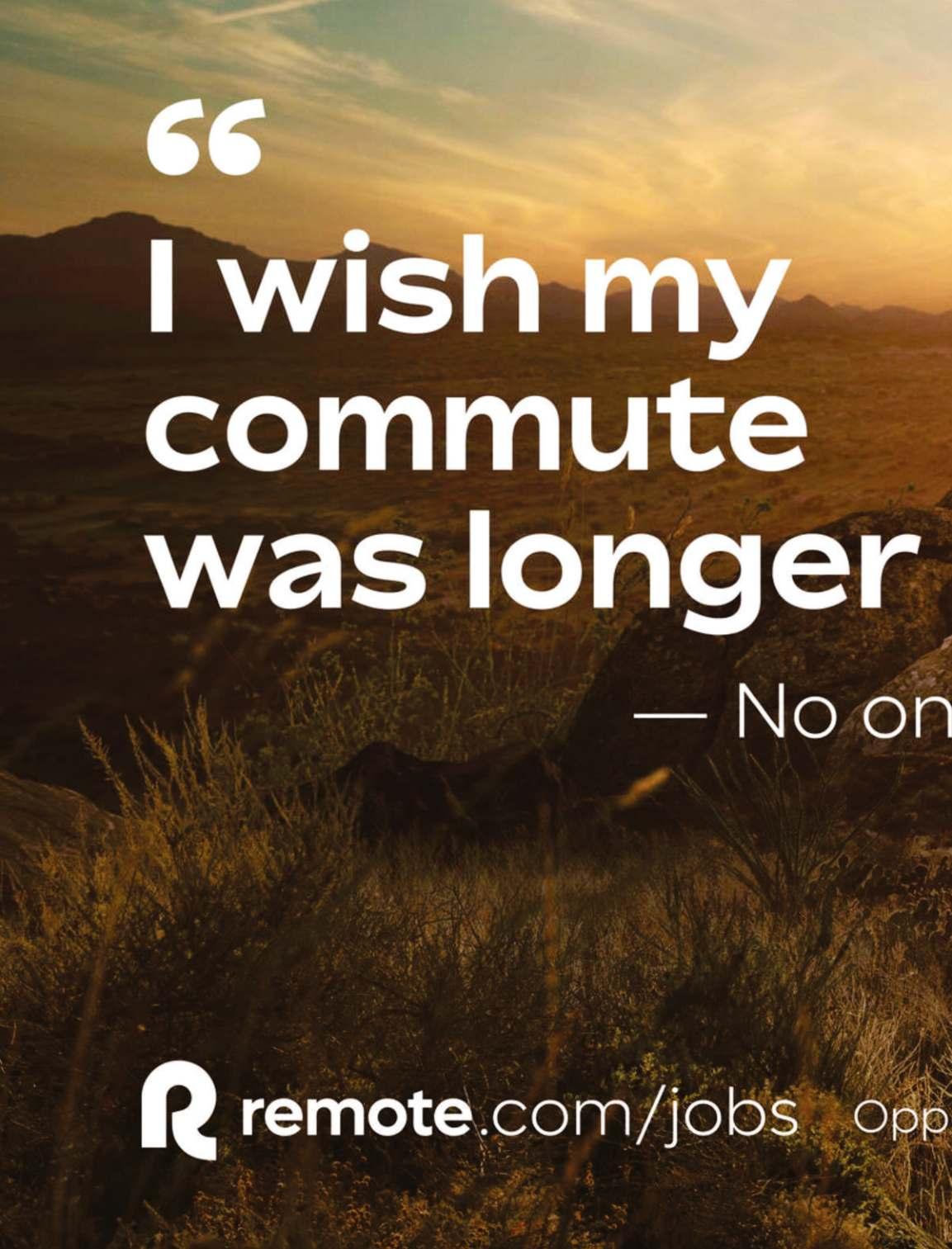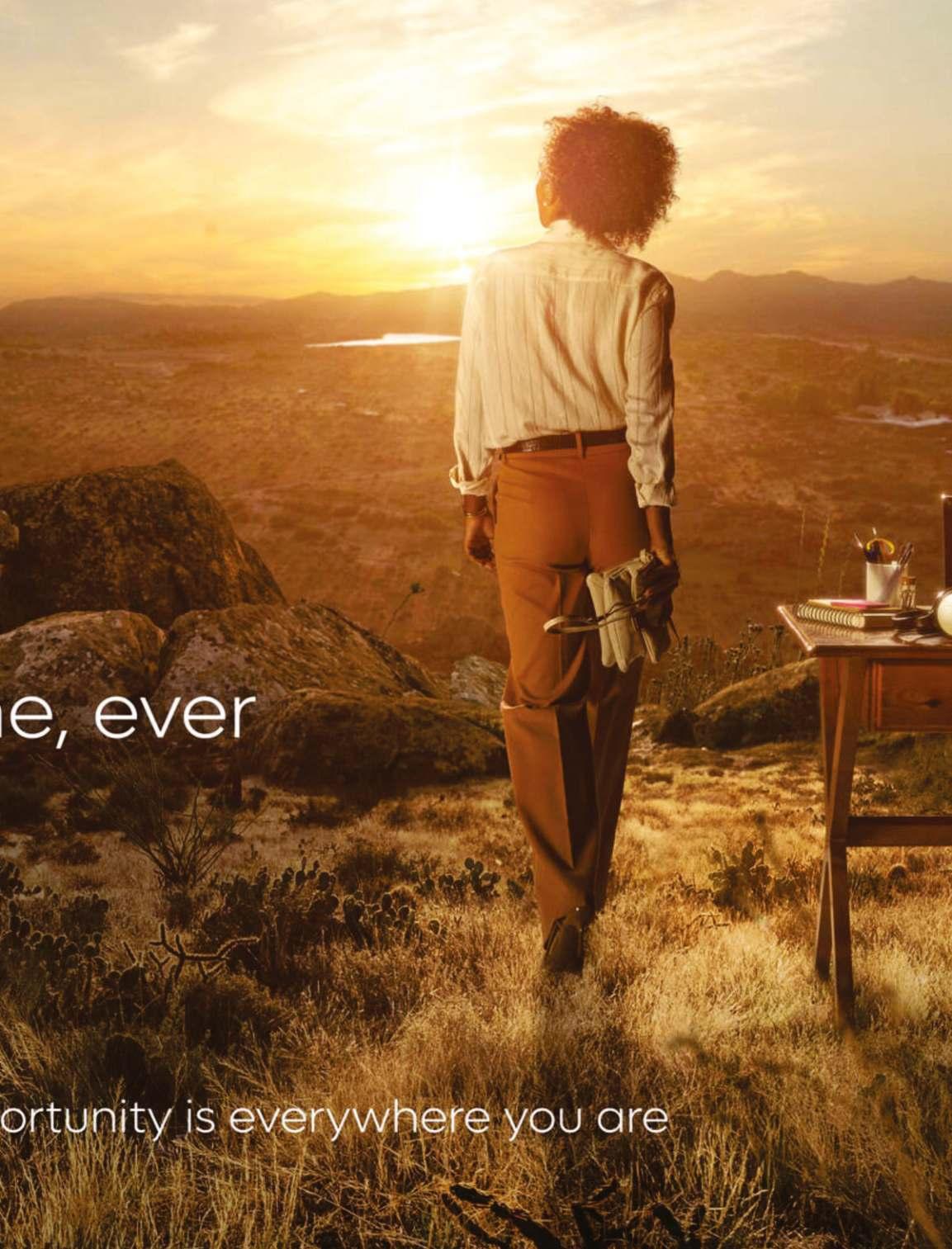EXELEON EXCLUSIVE
KRISTY GORDON: EXPLORING
AFRICA
IN – FOCUS
THE KINDNESS CAUSE STORY
Pineering o
LEADER TO FOLLOW




EXELEON EXCLUSIVE
KRISTY GORDON: EXPLORING
AFRICA
IN – FOCUS
THE KINDNESS CAUSE STORY
LEADER TO FOLLOW




In today's world, where the impacts of climate change and environmental degradation are becoming increasingly palpable, the call for sustainable leadership has never been more urgent. Sustainable leaders are those visionaries who recognize the intertwined fate of business, society, and the environment. They are the pioneers who are not only navigating the complexities of the present but are also laying the foundations for a more resilient and sustainable future.
The legacy of sustainable leaders is not just in the businesses they build or the policies they implement, but in the mindset they cultivate. They inspire others to think beyond short-term gains and consider the long-term well-being of our planet and its inhabitants. By setting an example and paving the way for sustainable practices, they leave a lasting impact that transcends their own lifetimes.
As we face the pressing challenges of our time, the need for sustainable leadership has never been clearer. It is a call to action for current and future leaders to rise to the occasion and steer our world towards a more sustainable, equitable, and prosperous future.
Da r y l Ye ung
DARYL YEUNG Editor-in-ChiefEmbracing Excellence
600 N Broad St 5 Middletown, DE 19709, United States
+1 302-907-9110
Editor-in-Chief –Art Director –Managing EditorCreative Director –
Daryl Yeung
Naomi Lam
Matt Reis Adam Waring
Project Manager –Marketing Manager –Customer Relationship –Business Development –
Richard Dann
Sofia Brown
Natasha Green
Matt Hale, Josh Wilder, Anish Miller
For any advertising related information, please contact info@exeleonmagazine.com. Submissions as well as contributions to the magazine are welcome.
Take a moment and let us know about our magazine; whether it be about the design or a possible mistake, we would appreciate any feedback from your end. You can reach out to
daryl@exeleonmagazine.com.
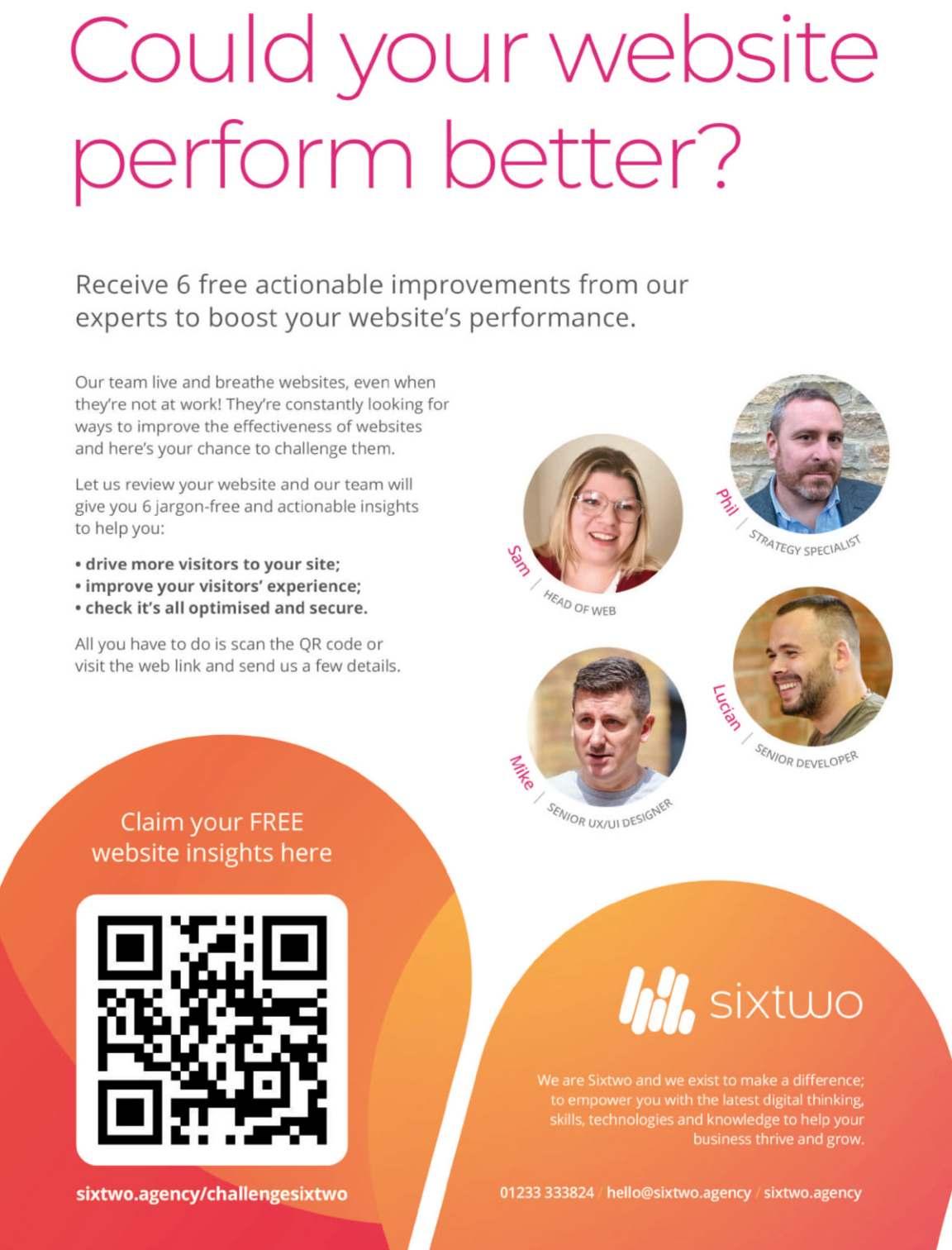
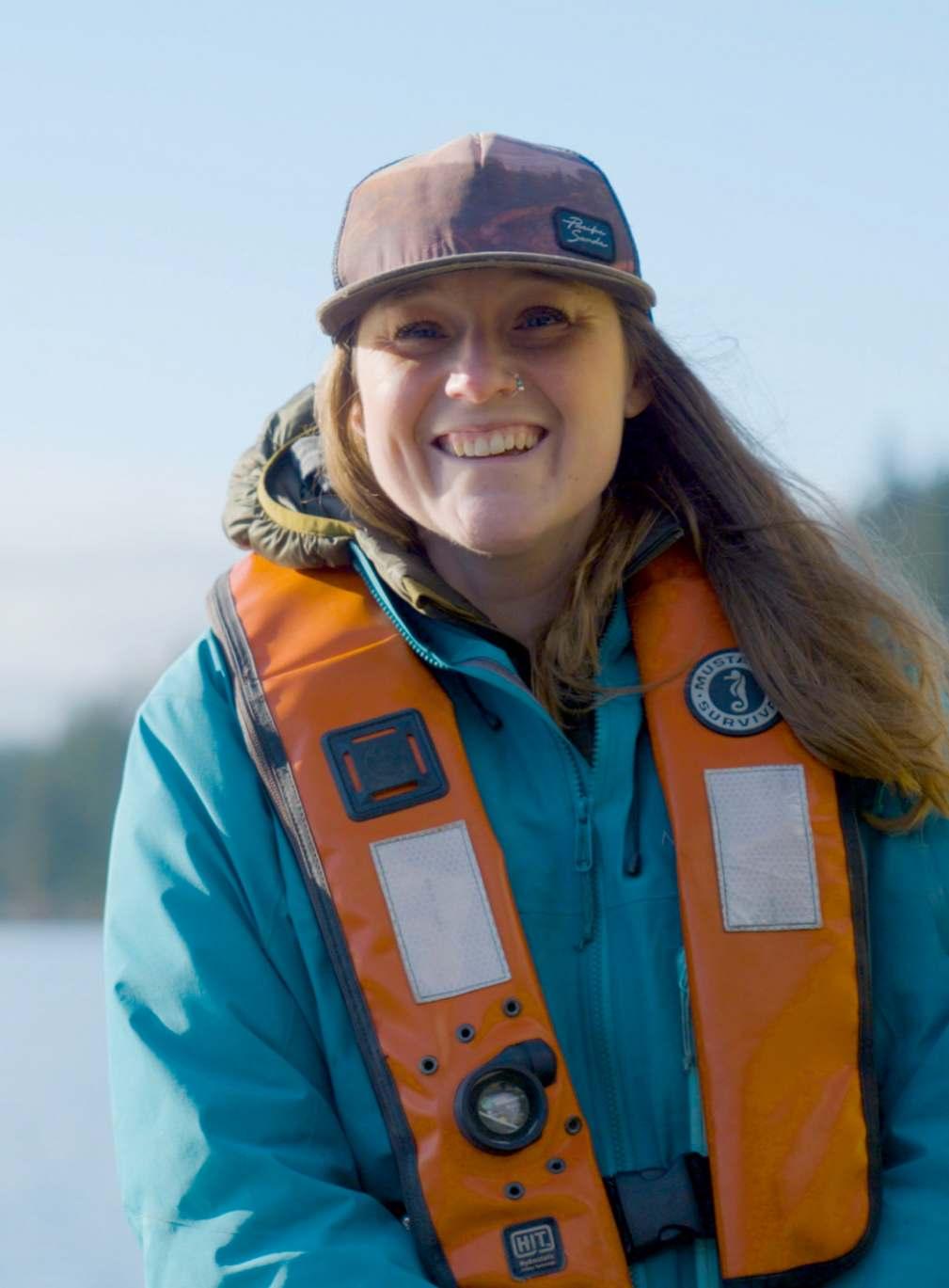
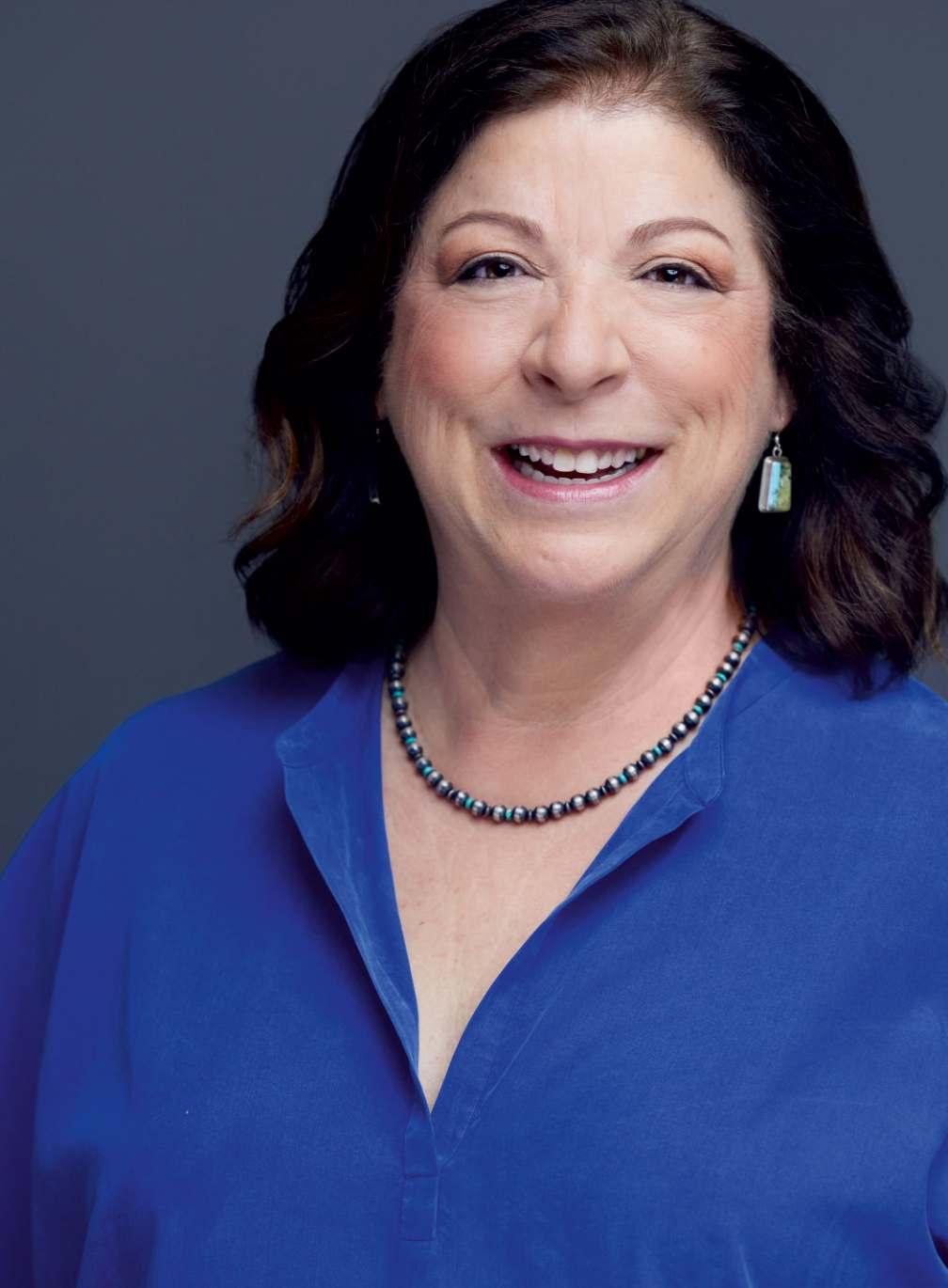
 DONNA ROSA
50
DONNA ROSA
50
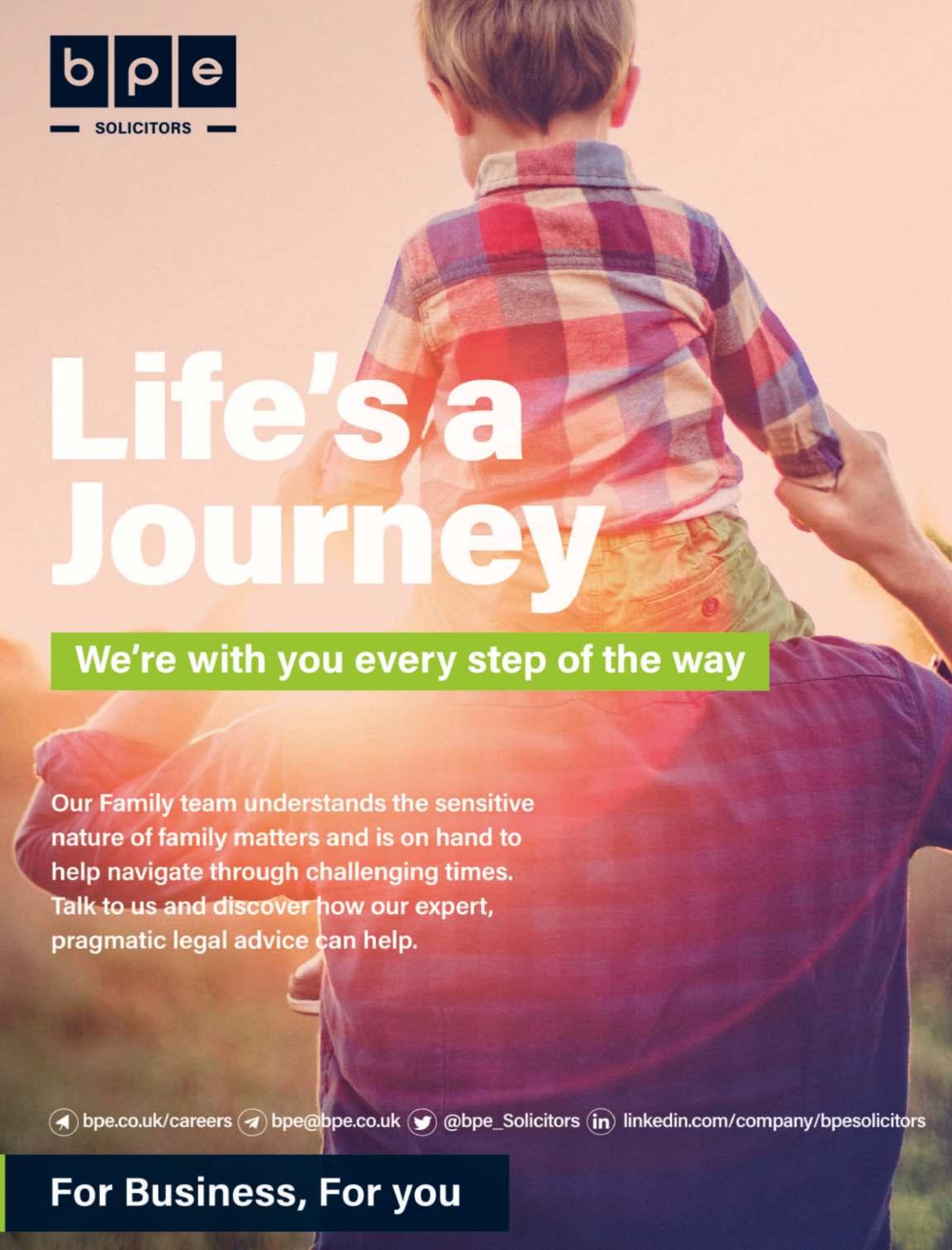



Co-founder & CEO
The Ocean Legacy Foundation



to Chloé Dubois, a pioneer is someone who works with a vision greater than themselves, thinking beyond the conventional norms and businessas-usual mindset. With a keen ability to listen and closely observe the world, pioneers possess a unique insight into the changes needed to impact communities and environments positively.
Chloé Dubois is an example of a pioneering leader who is on a relentless pursuit to tackle the global crisis of plastic pollution.
As the Co-founder and Executive Director of The Ocean Legacy Foundation, Chloé's mission is not just to clean up the oceans; it's a quest to reshape the way humanity interacts with the natural environment.
Born from a desire to take action and make a tangible difference, the Ocean Legacy Foundation, under Dubois' leadership, has become a leading voice in aquatic conservation. Through innovative cleanup and infrastructure initiatives, community engagement, and advocacy efforts, Chloé and her team are working tirelessly to rid our oceans of plastic pollution, one step at a time.
Fittingly, Chloe features on the Cover of Exeleon Magazine's Pioneering Leaders to Follow in 2024 issue. Herein, we look into her journey, her �ight against plastic pollution, and more.
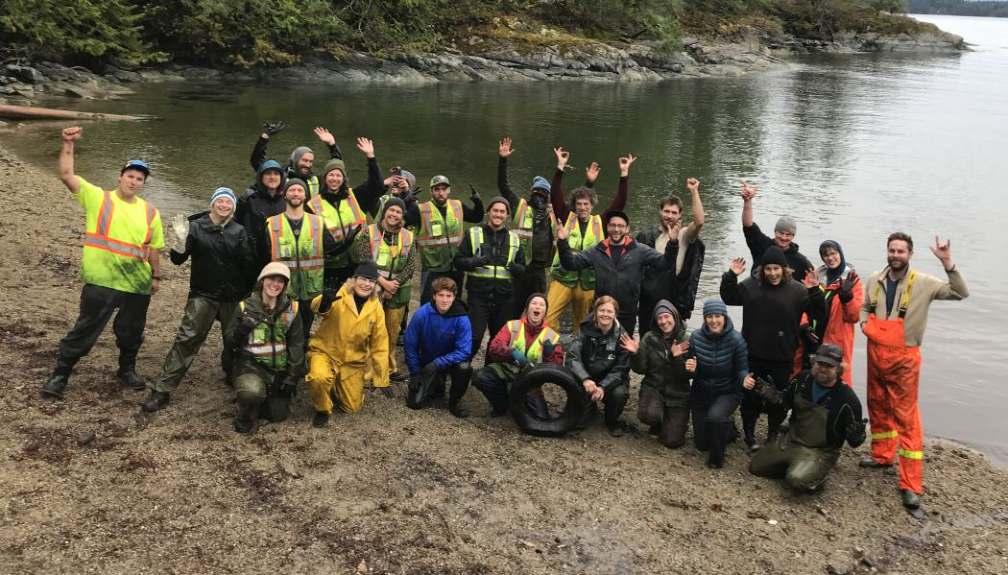
In 2011, Chloé Dubois found herself standing at a crossroads, her heart torn between a desire to make a meaningful difference in the world and the overwhelming complexity of where to begin. It was a pivotal moment in her life, one that would ultimately shape her journey and lead her to co-found the Ocean Legacy Foundation.
During this time Chloé enrolled for Work That Reconnects , a transformative course led by ecophilosopher Joanna Macy. Macy's teachings resonated deeply with her, providing a sanctuary for her to confront the grief and despair induced by the rampant environmental degradation of our world. "Her work is acclaimed by the Dalai Lama and focuses on
creating safe spaces within communities to grieve over environmental degradation," Chloé re�lects. This connection to nature and the urgent need for humanity to reconnect with the natural world would ultimately become the cornerstone of Chloé's journey.
Through the course, she was introduced to "Albatross," an unreleased documentary �ilm by Chris Jordan that intimately chronicles the devastation wrought by plastic pollution on the Albatross species. The �ilm served as a catalyst, igniting a �ire within her to take action and confront the urgent crisis facing our oceans. "This �ilm continues to drive me each day to engage in the incredible effort of reconciling the current state of resource exploitation with regeneration and active hope," she
shares.
Chloé's newfound clarity and determination propelled her into a period of deep re�lection, during which she delved into the study of Chinese medicine and contemplated the �leeting nature of life and the legacy she hoped to leave behind. As a person accustomed to throwing herself wholeheartedly into her passions, her resolve was unwavering. "My passions become my obsessions," she recalls, "and my newly found insight ignited a �ire within me."
In 2014, united by a shared vision, Chloé and James Middleton registered Ocean Legacy as a nonpro�it entity, marking the beginning of a new chapter in their mission to combat plastic pollution.
After forming Ocean Legacy in 2014, Chloé Dubois and James Middleton wasted no time heading towards their collective mission. Their initial focus was on clean-up efforts and mapping out pollution concentrations, taking them on tours of remote and urban environments worldwide to grasp the sheer enormity and complexity of the plastic issue.
Re�lecting on those early days, Chloé mentions, "It didn't seem to matter where we went, plastic pollution was the new face of most environments." This reality fueled their determination to lead large-scale remote expeditions, bringing together friends and colleagues to explore some of the world's most environmentally remote places and raise awareness of the urgent need for action.
Their work quickly expanded to encompass a wide range of initiatives, from microplastic research expeditions in Antarctica to shoreline clean-ups spanning across Canada, Mexico, Costa Rica, Panama, Guatemala, and the USA.
In 2016, Chloé and her team made a

groundbreaking commitment to develop a new waste management system for marine plastics. This initiative, known as EPIC, aimed to address gaps in education, policy, infrastructure, and clean-up efforts. Securing a grant from Innovation Solutions Canada and the Department of Fisheries and Oceans, Chloé led a team in researching, designing, and commercializing new methods to wash and extrude ocean plastics, revolutionizing their processing capabilities. Now with the continued �inancial support of the Province of British Columbia, the EPIC program has become a leading international example of aquatic restoration.
Nearly a decade later, EPIC has evolved into one of the most comprehensive response programs of its kind. "EPIC is the integration of Education, Policy, Infrastructure, and Cleanup," Dubois proudly declares. The program includes a 15-hour online education Academy in three languages, a marine plastics-based processing facility, large-scale remediation projects, a robust depot program covering seven regions across British Columbia and many international endeavors.

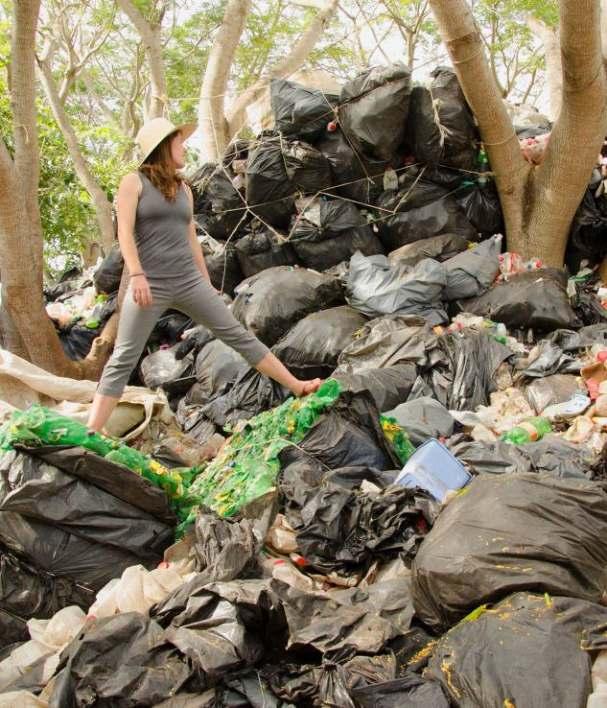
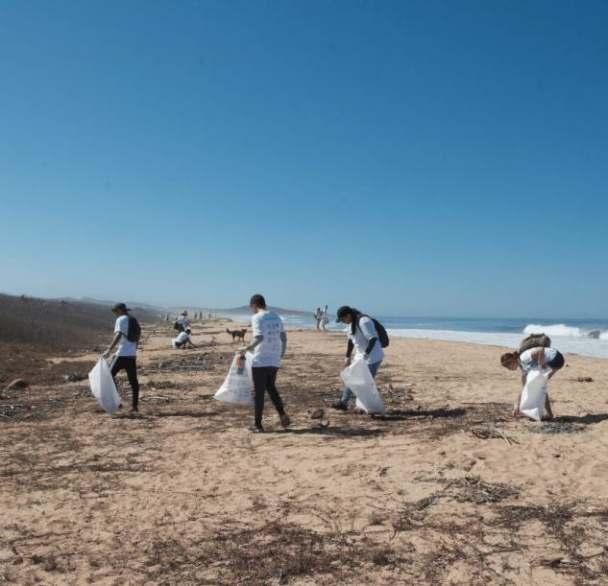

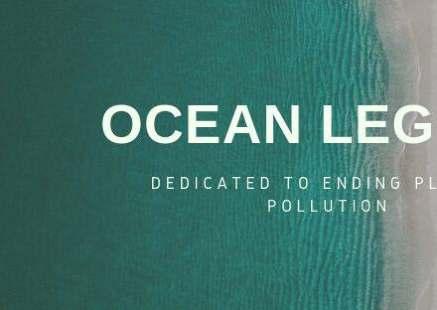



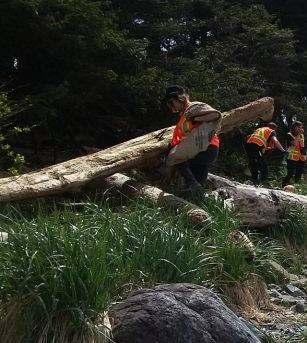 Mexico
Mexico







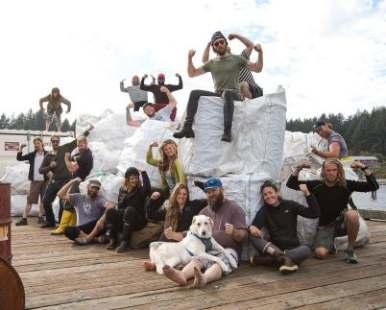
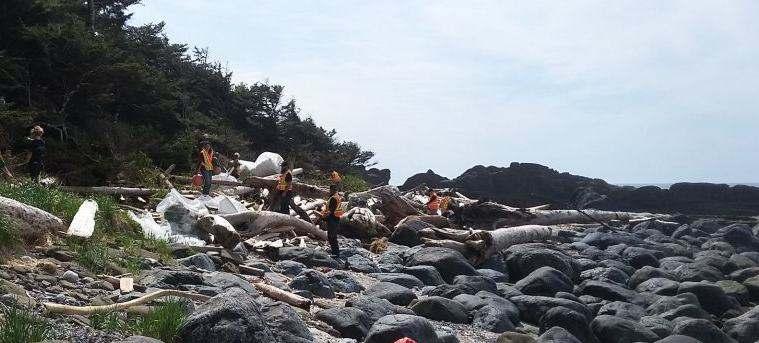 Musqueam,Tsleil-waututh, TsawwassenTerritory
Musqueam,Tsleil-waututh, TsawwassenTerritory
Mexico
Mowachaht/Muchalaht Territory
Musqueam,Tsleil-waututh, TsawwassenTerritory
Musqueam,Tsleil-waututh, TsawwassenTerritory
Mexico
Mowachaht/Muchalaht Territory
The EPIC approach has become the backbone of The Ocean Legacy Foundation's global vision.
“EPIC works to build a springboard of change," Chloé claims, highlighting the need for collaborative efforts that empower local leaders and communities to take ownership of solutions tailored to their unique environmental and cultural contexts.
At its core, the EPIC approach seeks to assist, empower, and enhance leaders in developing and implementing worldwide plastic pollution response programs. By identifying and implementing innovative technologies, education initiatives, and skills training, EPIC aims to convert plastic pollution into economic value while preventing further environmental degradation.
Central to the EPIC approach is the creation of accessible platforms that help communities build the tools needed to restore ecologically and culturally sensitive environments. This includes assessing and developing long-term plastic collection, processing infrastructure, policy frameworks, and cleanup activities to mitigate aquatic plastic pollution sources.
Through EPIC, Chloé and the Ocean Legacy team are pioneering a new paradigm in the �ight against plastic



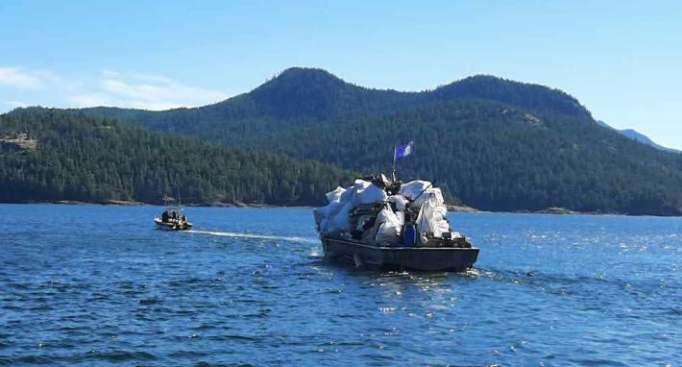
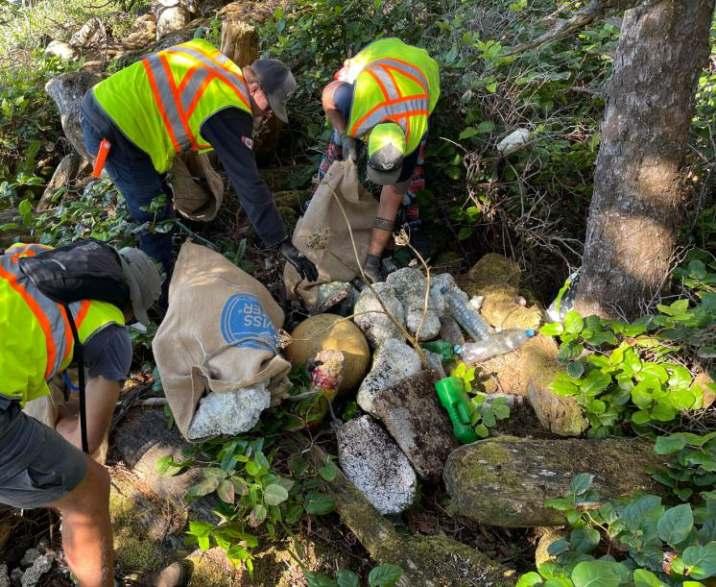
QuatsinoTerritory

“We are currently living in a reality where we are destroying ourselves and the planet we live in and where the actions of a few, effect the health and wellbeing of the entire planet and its global communities.”

pollution—one that recognizes the interconnectedness of environmental, social, and economic systems and empowers communities to be agents of change in their own right. With EPIC as their guiding principle, they are forging a path towards a cleaner, healthier planet for future generations.
A pioneer herself, Chloé de�ines pioneering leadership as embodying a vision greater than oneself and challenging the status quo. She believes that pioneers possess a deep-seated drive to make a positive impact on the world, driven by intuition and a commitment to learning from challenges. Despite facing criticism and adversity, pioneers persevere, driven by a strong sense of purpose.
Chloé integrates these pioneering qualities into her leadership at Ocean Legacy, viewing it as a lifelong journey of growth and adaptation. She talks about the importance of decolonizing leadership and actively supporting indigenous and marginalized communities. By prioritizing humility and listening to the needs of communities, she fosters collaboration and empowers others to drive change from within.
Kyuquot-CheclesehtTerritory
By nurturing a supportive team and embracing diverse perspectives, Chloé ensures that Ocean Legacy's vision of ending plastic pollution is pursued with integrity and inclusivity.
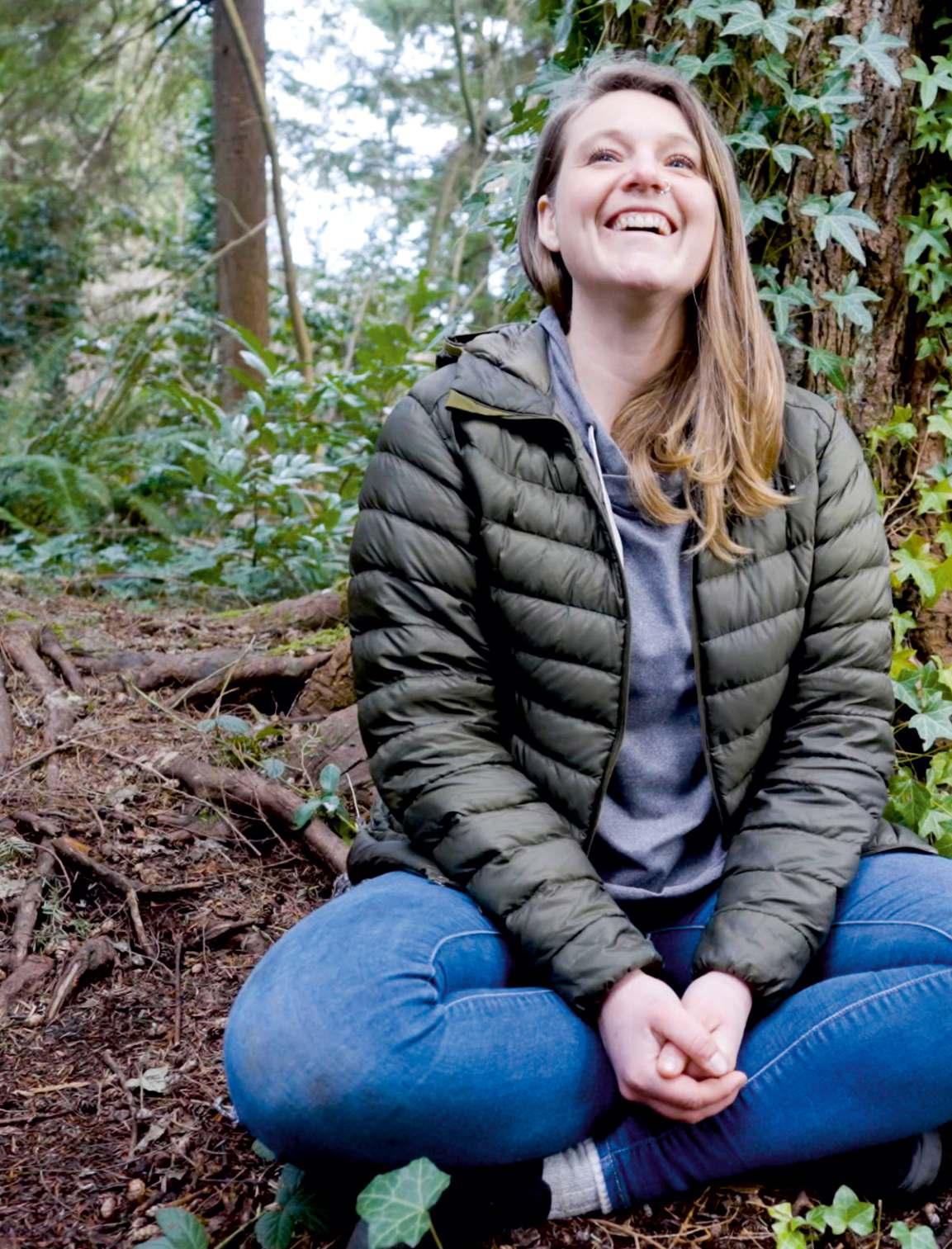



Talking about the monumental challenges posed by plastic pollution on both a local and global scale, Chloé explains "The biggest challenges facing our team and this planet in respect to plastic pollution are multifaceted." She highlights the unregulated surge in virgin plastic production and the lack of infrastructure to manage these materials worldwide.
She emphasizes the insidious nature of plastic pollution, viewing it as a design �law and a symptom of humanity's disconnect from the natural world. "Plastic pollution is a symptom of a much larger problem, our disconnect from the natural planet and our place within it." This profound disconnection, she argues, perpetuates unsustainable consumption patterns and exacerbates environmental degradation.
Operationally, Ocean Legacy's team grapples with a myriad of obstacles as they navigate diverse terrains and communities affected by plastic
pollution. From remote, disasterladen locales to rugged coastlines, each cleanup initiative presents unique challenges. "The remediation plans we establish are co-developed with local indigenous and non-indigenous community members and governments where possible," Chloé explains, thus underscoring the importance of community engagement and cultural sensitivity.
Despite these challenges, Chloé remains steadfast in her commitment to fostering systemic change. She advocates for a paradigm shift towards circularity, where resources are recirculated within a closed-loop economy. "In order to shift our world away from a take-> make -> waste model, we need the principles of circularity ingrained in every decision we make." This holistic approach, she believes, is essential for rede�ining humanity's relationship with nature and promoting sustainability on a global scale.
Looking ahead, Chloé Dubois envisions a future where Ocean Legacy Foundation leads the charge in ending plastic pollution across all lands and waters. While acknowledging that achieving this goal may extend beyond her lifetime, she remains resolute in her commitment to systemic change and sustainability.
Central to Ocean Legacy's vision is the recognition of the intertwined
nature of environmental and social issues. Chloé emphasizes the importance of addressing inequality to foster a deeper connection between humanity and the natural world. "How can we protect the systems which sustain all life on this planet when half the world's human population is living in poverty, working daily to meet the needs of survival " she asserts, underscoring the need for inclusive solutions that empower communities worldwide.
Highlighting the potential of plastics as a catalyst for economic stimulation, Chloé stresses the importance of implementing the integrative components of EPIC (Education, Policy, Infrastructure, and Cleanup) on a global scale. This comprehensive approach, she believes, is key to unlocking systematic change by equipping individuals and communities with the knowledge and tools needed to address plastic pollution effectively.
Chloé Dubois mentions about the crucial role of education in combating plastic pollution. Through Ocean Legacy's EPIC Academy, she aims to help equip individuals with the knowledge and skills needed to drive meaningful action. By fostering awareness and facilitating grassroots engagement, the EPIC Academy empowers communities to make informed decisions and advocate for change.
Chloé advocates for policies that incentivize sustainable practices and mandate the use of recycled content in products. She emphasizes the need for a robust Global Plastics Treaty to address plastic pollution on a global scale. By engaging policymakers and advocating for meaningful legislation, Ocean Legacy seeks to effect lasting change at the policy level.
Ultimately, Chloé Dubois believes that rede�ining consumption patterns is integral to ending plastic pollution. Through the EPIC methodology, Ocean Legacy aims to navigate the complexities of
Ocean Legacy prioritizes infrastructure development to manage plastic waste effectively. By investing in containment, processing infrastructure, product design innovation and product manufacturing that utilizes recycled content, she envisions a future where communities have the tools to minimize waste and recirculate resources.
addressing this crisis by developing tailored solutions that engage stakeholders at every level.
Chloé Dubois's impact in water conservation extends beyond the
Ocean Legacy's cleanup initiatives span a wide range of environments, from remote shorelines to derelict vessels and aquaculture sites. By hiring and training rural coastal community members, Ocean Legacy helps to empower communities to take ownership of cleanup efforts. Chloé envisions a future where communities work together to restore balance to the environment and create a sustainable future for generations to come.
removal of millions of pounds of plastic waste. Her legacy lies in the communities empowered, the policies in�luenced, and the educational initiatives that have shaped minds globally.


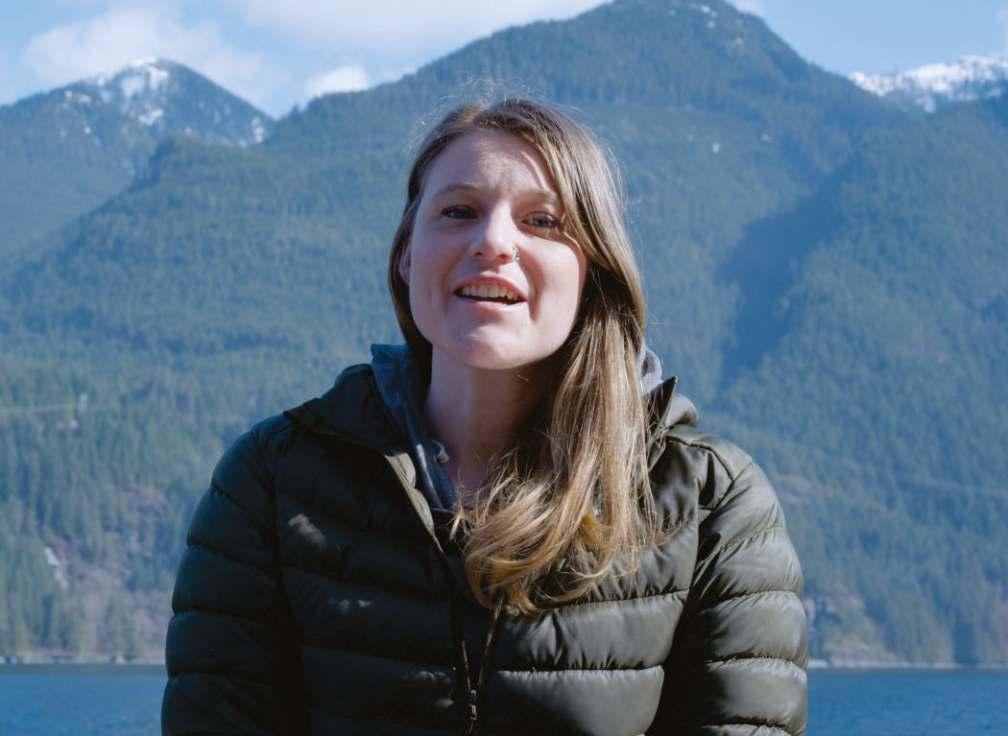
One Book Entrepreneurs must read – Crucial Accountability: Tools for Resolving Violated Expectations, Broken Commitments, and Bad Behavior.
Authors: Patterson, Grenny, Max�ield, McMillan and Switzler
One Productivity Tool / App that you use – I use Headway quite regularly to learn new tools or techniques to increase my productivity as well as overall wellbeing. I also use project management software such as Asana to track project progression
across a wide spectrum of initiatives and geographical locations.
One Quote that Motivates you the most – Never doubt that a small group of thoughtful, committed citizens can change the world ; indeed, it's the only thing that ever has . – Margaret Mead.
One Leadership Advice that you Follow – Surround yourself with people who inspire and support you. You are the company you keep.

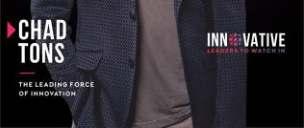
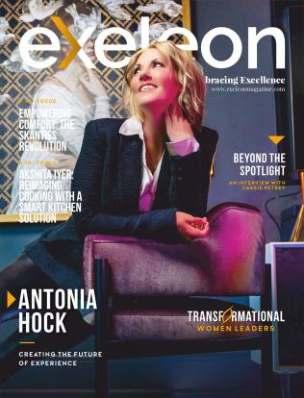



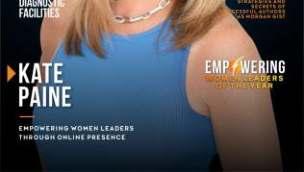






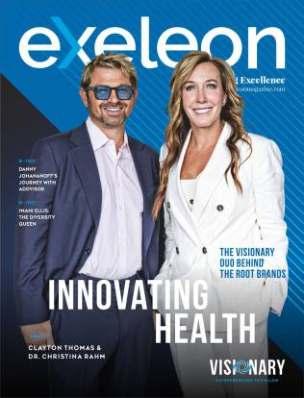


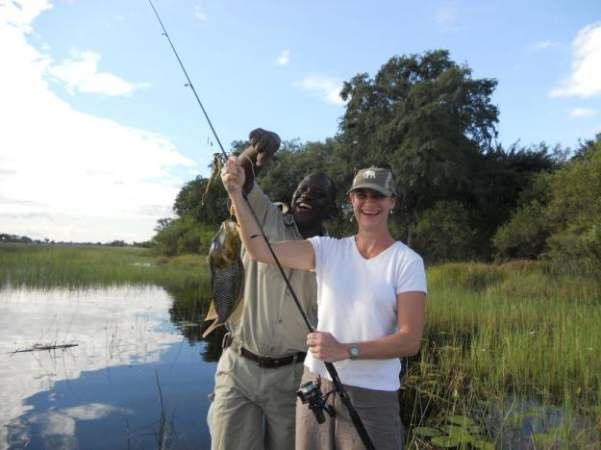
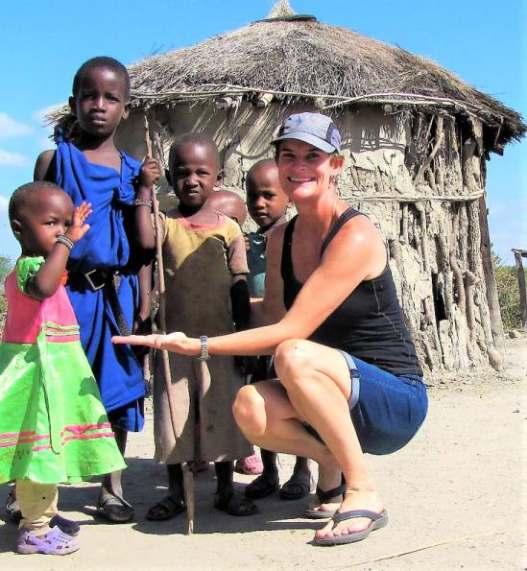
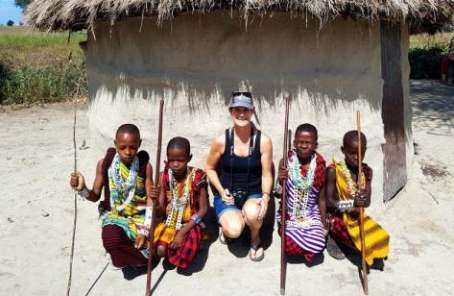

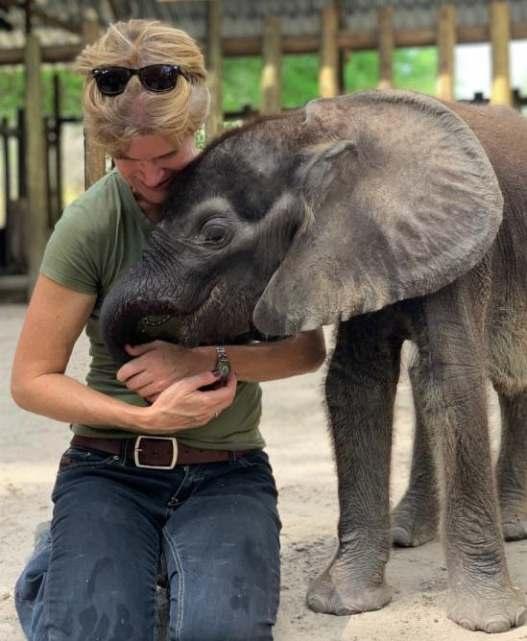
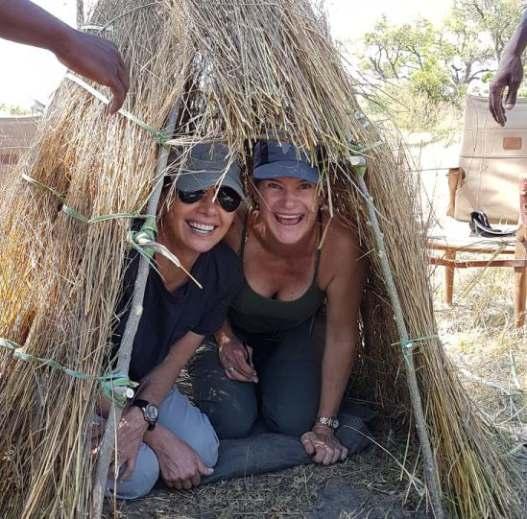
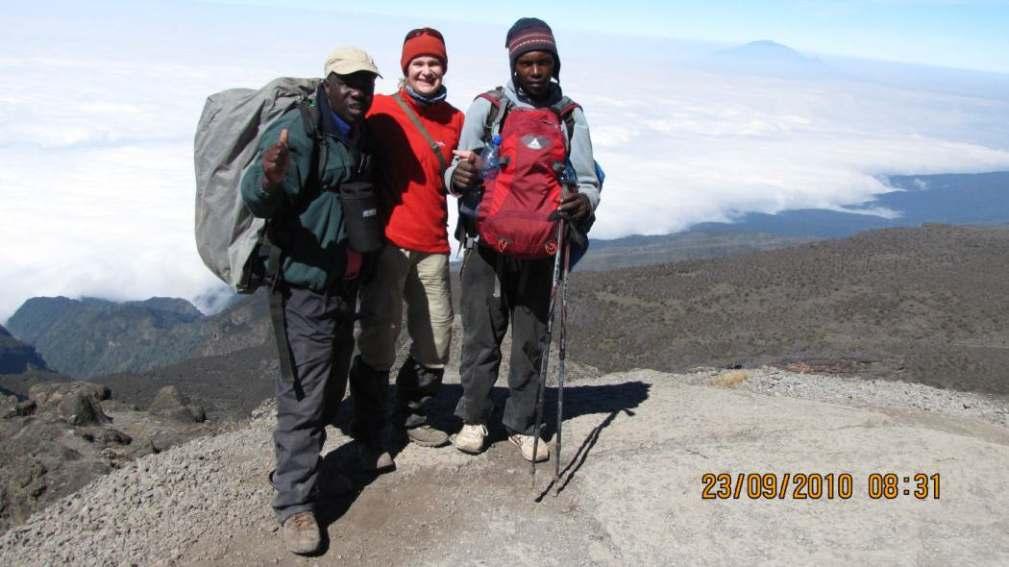

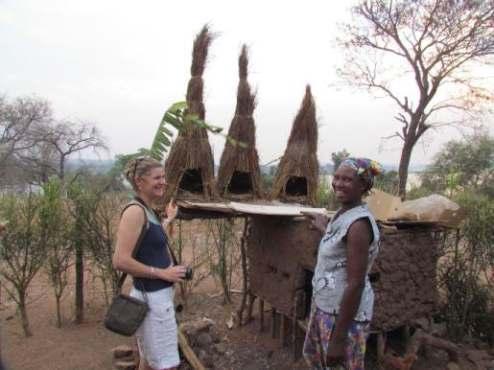



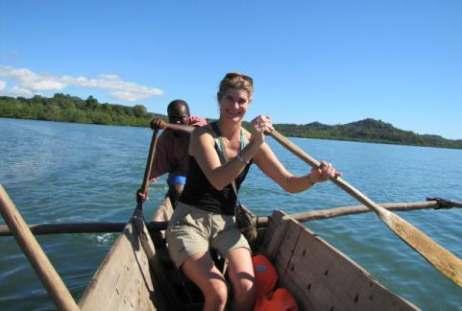

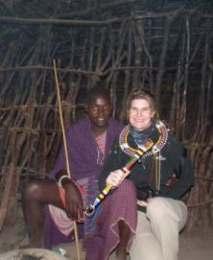

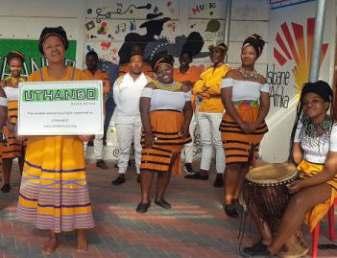
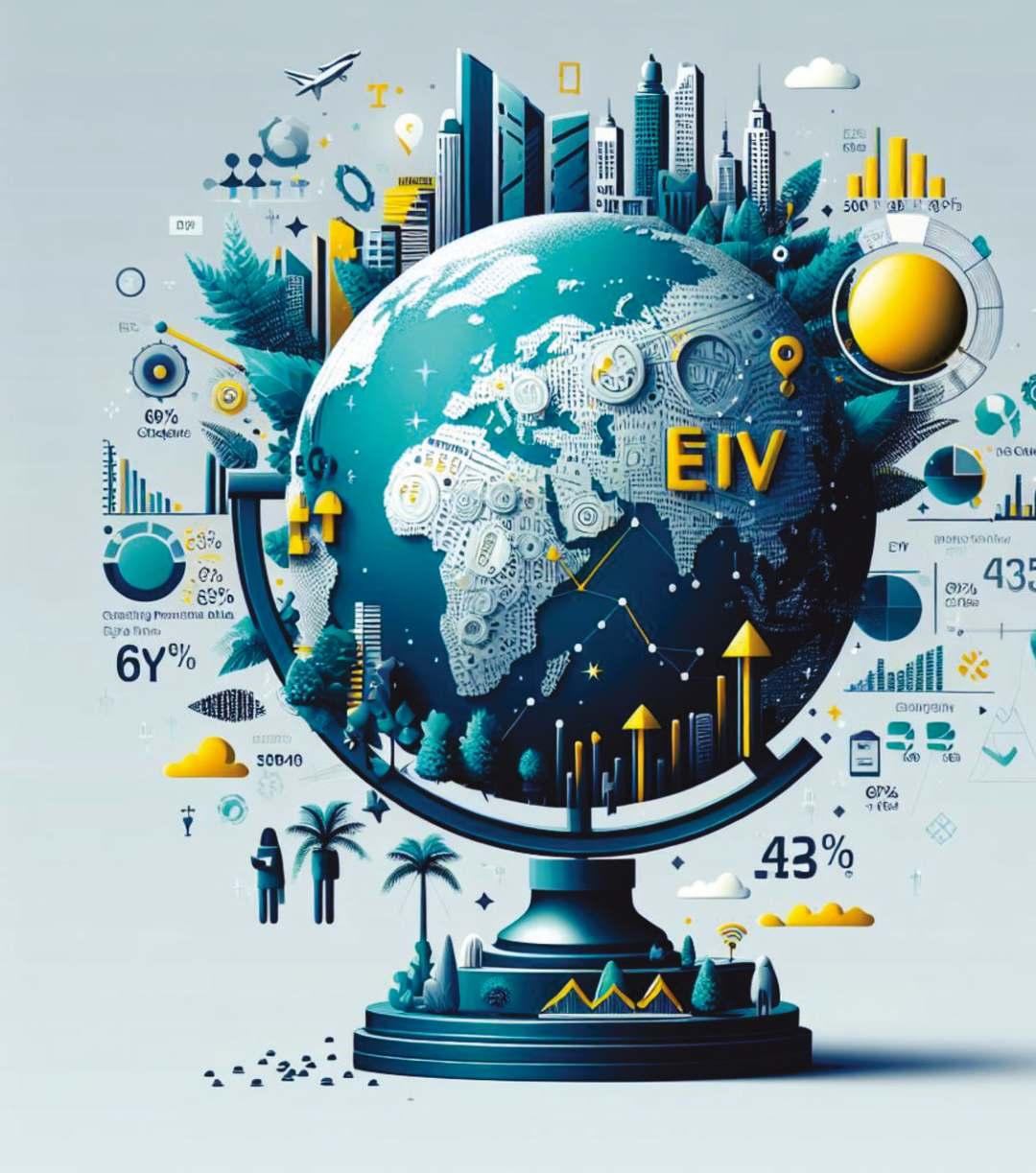
In a recent EY CEO Outlook Pulse survey, global CEOs have expressed optimism for their companies' revenue growth and pro�itability in 2024, despite facing a challenging global economic environment. The survey, which included responses from 1,200 CEOs across 21 countries, revealed that 64% expect an increase in revenue growth, and 63% anticipate higher pro�itability.
This optimism persists even as three-quarters (76%) of the CEOs expect the global economy to continue experiencing low or no growth. Additionally, 78% are preparing for higher interest rates to persist due to ongoing in�lationary pressures, and over half (57%) foresee an increase in the cost of doing business.
Andrea Guerzoni, EY Global Vice Chair – Strategy and Transactions, highlighted that CEOs are demonstrating resilience and con�idence, actively seeking opportunities for business transformation and growth. Many are revisiting their business transformation plans and exploring smart investments and potential alliances.
The survey also indicates a positive outlook for the deals market in 2024, with 79% of CEOs predicting an uptick in mergers and acquisitions (M&A) megadeals above $10 billion. The manufacturing sector is identi�ied as the top sector for M&A deals, followed by banking and capital markets, insurance, consumer products, and mobility.

CEOs are also accelerating their transformation plans, with 58% now speeding up their agendas, a signi�icant increase from 21% in July 2023. Key focus areas include ef�iciency enhancements and cost management strategies, with 41% looking to adopt arti�icial intelligence (AI) to drive ef�iciency and bolster business performance.
However, geopolitical risks are a major concern for CEOs, especially with over half of the global population heading to the polls in
the next 12 months. Seventy-eight percent of CEOs are worried about the rise of populist movements, and 76% are concerned about the political misuse of AI in major 2024 elections. As a result, 98% of CEOs and private equity leaders are making alterations to their investment plans to navigate through the volatile geopolitical landscape.
Guerzoni emphasized the importance of integrating geopolitical turbulence into
strategic plans and re�ining risk management processes to navigate through the challenges ahead.
In summary, global CEOs are optimistic about driving revenue growth and pro�itability in 2024, despite economic headwinds and geopolitical risks. They are actively pursuing business transformation and preparing for a rebound in the deals market, while also remaining vigilant about the potential impacts of political uncertainty and AI misinformation.














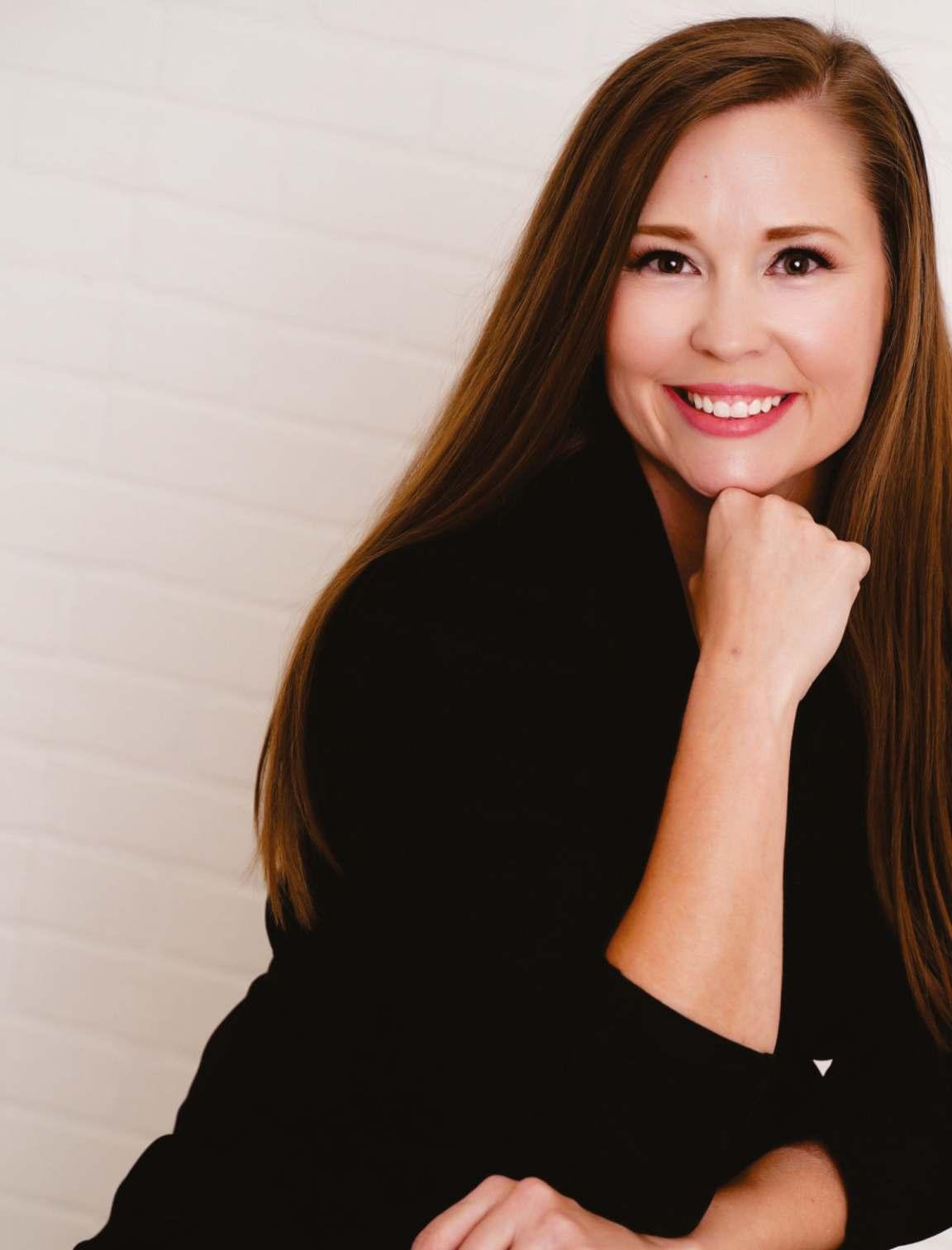











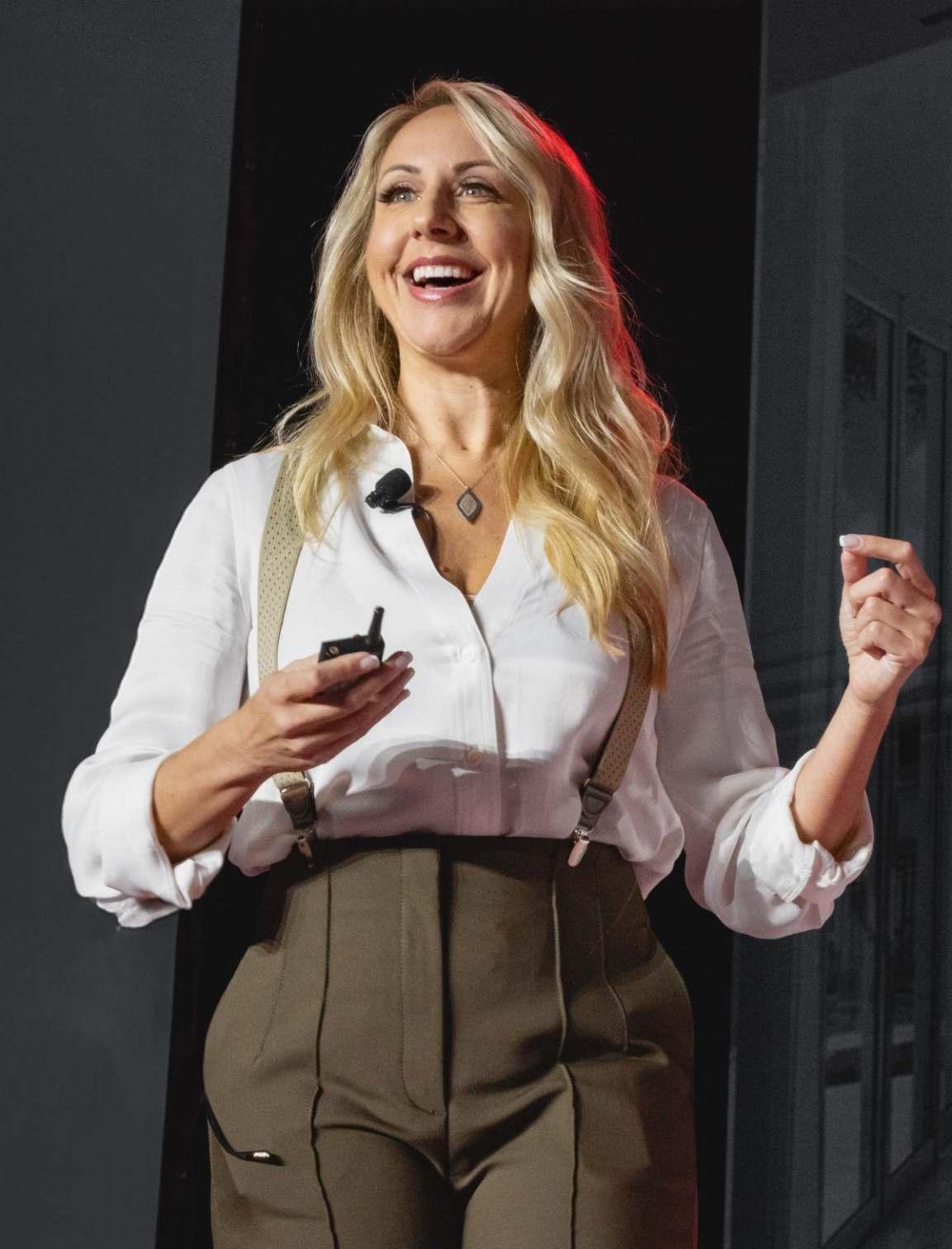
Women's History Month ushers women across the globe into the limelight and advocates for women's equality. Yet, we're overlooking millions of women as if they were invisible: female entrepreneurs in developing countries . They are unseen and unheard outside the international aid community, but they are a quiet, hardworking, and productive force.
I've come to know their stories and sorrows, struggles and successes. I'm a business coach for entrepreneurs in emerging economies, and before I discovered this calling, I never knew it was a thing. I'd spent the bulk of my career in the corporate world, wanting to give back to society but not knowing how. Over time I realized that I'd accumulated a measure of business experience,
and I could either die with it in my head or share it with those who would most bene�it from it.
Eventually, I found my way into international development, supporting microenterprises in low-income countries. I saw a key success factor being overlooked: while small business owners were provided technical support and sometimes �inancing, they were not being taught day-to-day business management or planning. So I stepped in to �ill the gap.
I love this work because it takes so little to make a massive difference in people's businesses--and lives. And I love entrepreneurs because they are like sponges, eager to absorb everything they possibly can, and grateful for the help. They are exceedingly strong and resilient,
and they don't realize it. They are my heroes.
When you think of entrepreneurship in poor countries you might envision a woman selling crafts or vegetables in a local market. Of course there's that—a lot of it. However, entrepreneurs fall along a continuum, from lowincome solopreneurs to small established businesses to high-tech innovators seeking global venture capital. All are found in the developing world, but here I focus on those I work with, microenterprises with 1-10 employees.
While we in the West tend to glorify entrepreneurship (especially

startups) it's just the opposite in many poor countries. Steady wagepaying full-time jobs are rare and prestigious. Since there are few jobs available even for the educated, the only way to make a living is to �igure out how to sell something. Such business owners are called “entrepreneurs of necessity.”
I work with both male and female entrepreneurs, and many of the problems they face traverse gender. If you think entrepreneurship is hard, try doing it in a developing country. They deal with innumerable annoying obstacles that shouldn't be issues, like lack of (or intermittent) electricity or clean running water. If they are fortunate enough to have access, it's expensive. Every day they cope with poor infrastructure, extremely limited resources, little or no access to capital, unpaved roads, expensive distribution, old equipment that constantly needs repair, and unreliable suppliers and labor. It's lonely at the bottom.
Underlying all this is the most insidious problem of all: as they most simply don't know how to manage a business, however small. How could they? There are no Small Business Administrations that give free assistance and advice. Unstable, under-resourced governments burden businesses with regulations and red tape and thwart business-enabling environments. Aid agencies, NGOs, and social businesses do provide �inancial/resource aid and technical training, but there's just not enough to go around.
Some time ago the international
donor community �igured out that when they enable women, they enable entire communities. Turns out that there's a multiplier effect for resources spent supporting them. When women acquire skills and develop incomes, they use a greater portion of that money for their families and communities than men do. That means better education and health for children, as well as poverty reduction. With that kind of ROI, aid has focused on supporting women in many ways, including business.
With the resulting attention on women, I've had the opportunity to work with both individual female business owners and women's groups. I enjoy both. I marvel at how women seem to come together naturally to support each other, especially in dif�icult circumstances.
I vividly remember a group I worked with in rural Kenya, where the women took it upon themselves to improve their community after a boy was found dead in an open sewer pit. They began reporting open sewers to the health department, and with that success, initiated all sorts of activities. Projects included sanitation improvement, protecting the local river, advocating for children's' rights, promoting local droughtresistant crops, assistance for young parents on family, maternal and child issues, gender sensitization, trainings in adjacent communities, and helping women generate sustainable incomes.
I was equally impressed by their business smarts: they acquired some grant funds, and instead of simply dividing the money among the members they chose to create a
small enterprise to generate ongoing income for all.
There has been signi�icant progress for working women and women's rights over the past 50 years. World Bank data indicates that in most countries, women can now sign contracts, open bank accounts, and register businesses, although access to credit is still a problem.
Still, women face obstacles that men do not. Some are cultural and others are simply discriminatory, but either way, women are systematically excluded from economic opportunities, and it prevents them from developing their businesses.
The uneven playing �ield starts in the playground: girls have less access to education than boys. When they marry their needs can be subordinated. If a woman does manage to create a small business, she adds that on top of her responsibilities for child-rearing and running the home.
It can be dif�icult for businesswomen to access muchneeded credit in the developing world, which is interesting since women are far less likely than men to default on loans. A report by the Women Entrepreneurs Finance Initiative (We-Fi) states that “Seventy percent of formal women owned SMEs in developing countries are either shut out of �inancial institutions or can't get the capital they need.” That makes women's businesses smaller, less pro�itable, and slower growing than their male counterparts. Understandably, they tend to be
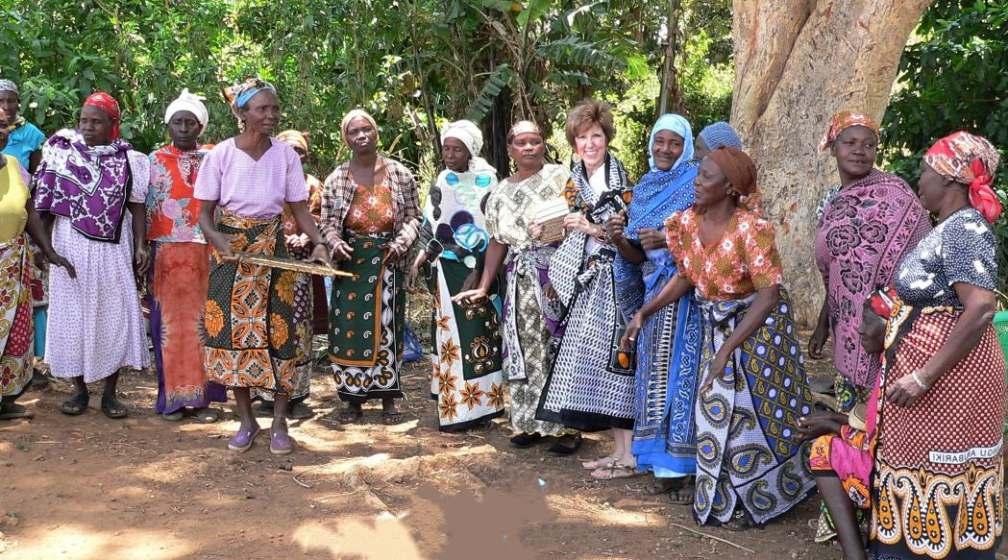
more concerned with business survival rather than growth.
Legally women are routinely discriminated against in family, land rights, and labor laws. These regulations can be worse for women entrepreneurs than the business laws: they determine whether women can make independent economic decisions, enter contracts, or own, manage, or inherit assets and property. Loans, for example, usually require collateral. Because men can own land and other assets and women often can't, they are immediately excluded from opportunities to borrow.
Other factors play a role, too. Women frequently lack the business networks, contacts, and access to markets to build successful businesses. They open
businesses without management skills, education, training, or experience.
Despite the uphill battle, I have high hopes for women entrepreneurs in developing nations. They are both determined and undeterred. If we arm them with skills, encouragement, and funding they have a �ighting chance. They deserve not just support, but admiration.
It's important to note that developing-country entrepreneurs need the right form of assistance for their businesses to thrive. I �ind they do best when they learn key concepts in the context of their own businesses rather than large scale, one-off generalized training; it's dif�icult for them to go home and
apply what they learn after a workshop. That's why I prefer oneone or small group coaching, which enables me to learn the ins and outs of each business and provide the handholding and encouragement they need to develop selfcon�idence and achieve pro�itability.
If you are part of a business with a social mission, CSR program or ESG mandate consider lending some brain trust, �inancing, or mentorship to developing-country women entrepreneurs. Your knowhow can make a big difference with even a small investment.
For more information on Donna and her work visit www.efourenterprises.com and www.donnamrosa.com
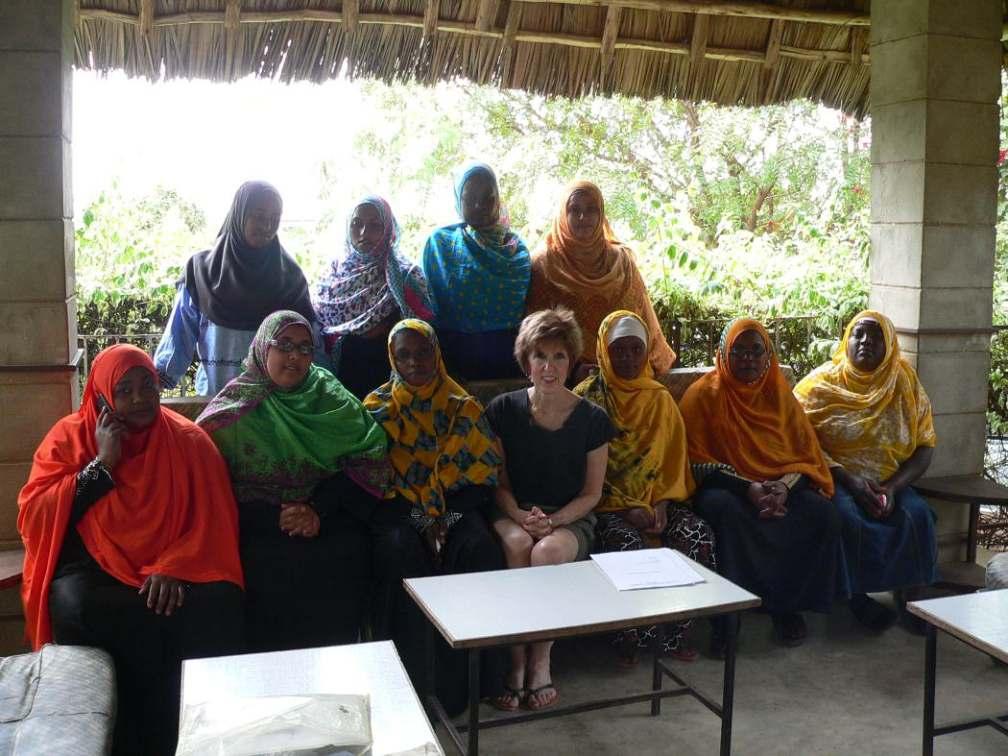
Donna Rosa is Founder and Chief Entrepreneurship
Of�icer of EFour Enterprises LLC. EFour stands for Empowering Entrepreneurs in Emerging Economies, providing remote business coaching tailored to the special needs of entrepreneurs in developing countries.
Donna spent most of her career in the food industry. She eventually transitioned into international development, working with microenterprises and small businesses to reduce poverty in Africa, the Caribbean, Eastern Europe, Central America, the Middle East, and Russia.
In addition to her work with entrepreneurs, Donna
is heavily involved in improving global food security. She founded and manages the Food Science for Relief and Development (FSRD) program under the International Division of the Institute of Food Technologists (IFT). In 2023, Donna was the recipient of IFT's Humanitarian Award for Service to the Science of Food in honor of Elizabeth Fleming Stier. She has also written a book chapter on careers in this emerging �ield.
Donna currently mentors women entrepreneurs in Africa under the FAO-IAFN Women SMEs Accelerator Program and serves on several nonpro�it boards related to international development.
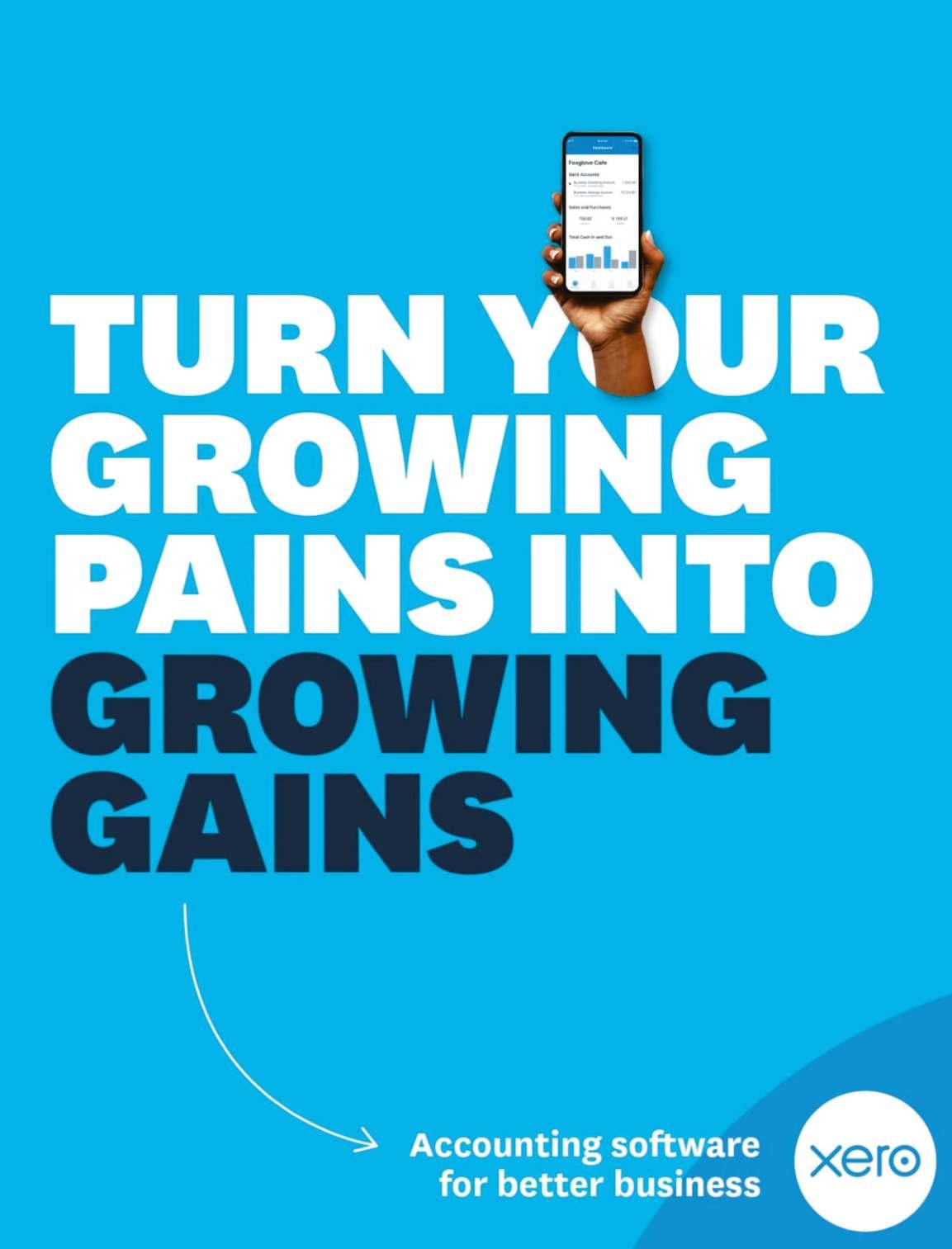

Within the digital marketing space, marketers are now facing new challenges as highlighted in Contentsquare's 2024 Digital Experience Benchmark Report. The report indicates that cost in�lation and declining traf�ic numbers are creating signi�icant hurdles, with the cost per visit rising by 9.4% last year.
Marketers are employing a variety of potential solutions to combat these challenges. However, the report warns that these solutions can sometimes "mask — and often
contribute to — a fundamental issue negatively impacting digital journeys." This issue is the frustration experienced by users due to various factors such as codeproducing errors, slow page loads, multiple clicks, and low page activity.
"Frustration can have painful consequences on customer engagement," the report states. "While encouraging advances were made in reducing friction in the experience in 2023, it still impacted 2 out of every 5 user sessions in some way." These moments of
frustration not only hurt SEO but also contribute to higher bounce rates, making a noticeable impact on the customer experience.
The cumulative effect of letting frustration fester can be disastrous, potentially reducing the engagement and value of a visit by15.0%. The report highlights the importance of addressing these frustrations to ensure a smooth digital journey for users.
Furthermore, the report sheds light on the role of intention in bounce rates. It points out that paid search traf�ic, with a conversion rate of 2.55%, not only outperforms paid social traf�ic, which has a conversion rate of 0.61%, but also has a lower bounce rate (43.9% compared to 61.7%). This indicates that users coming from paid search are more likely to know what they want and are receptive to landing deep within the site, making a product or solution page an appropriate landing spot.
As digital marketers navigate the challenges of 2024, the Contentsquare report emphasizes the need to continue combating user frustration and understanding the intent behind traf�ic sources to enhance the overall customer experience.
Wyoming has taken a bold step into the future of business with a new law that fundamentally alters the landscape of corporate governance and mergers and acquisitions (M&A). The law, passed last week, establishes a legal framework that allows for Decentralized Autonomous Organizations (DAOs) to operate with unprecedented autonomy, paving the way for fully autonomous AI agents to become signi�icant �inancial actors on behalf of organizations.
Under this pioneering legislation, DAOs can be hard-coded through smart contracts and software, enabling them to:
Ÿ Merge with or acquire any company
Ÿ Make contractual agreements through smart contracts
Ÿ Own companies and property
Ÿ Assume liability with limited member liability, similar to an LLC
Ÿ Pay third parties, such as contractors
Notably, DAOs with over 100

members gain legal status, perpetual existence, and limited liability for members under the bill's provisions. This opens up new possibilities for value creation, with companies exploring mergers between DAOs and novel collaborations, such as a DAO specializing in digital assets merging with a �inancial institution.
Emmet Halm, co-founder of DAOHQ, anticipates that many DAOs will build on top of Open AI models, leveraging the unique value distribution mechanisms of DAOs to distribute wealth generated from AI products and services. Companies like Fetch.ai are already creating platforms where AI bots can engage in income-generating activities,
from handling complex transactions to owning property and executing M&As, all without human intervention. The revenue generated is then passed back to the DAO and its members.
This development in Wyoming is reminiscent of the early days of Bitcoin and its potential impact on the economy as a decentralized currency. With legendary shareholder activist Bill Ackman expressing interest in Bitcoin, it raises the question: How long before he and others are discussing the transformative potential of AIbacked DAOs in the corporate world?

Nestlé has announced a
notable achievement in its sustainability efforts, with a net reduction of 13.5 per cent in its greenhouse gas (GHG) emissions compared to its 2018 baseline, as outlined in its Sustainability Report for 2023. This reduction includes a signi�icant decrease of more than 15.3 per cent in methane emissions.
Antonia Wanner, Group Head of ESG Strategy and Deployment at Nestlé, expressed pride in the company's progress. "Our progress on emissions reductions is proof of our unwavering commitment to our net-zero roadmap," she stated. "We are working closely with our partners to help make food
production more sustainable, while aiming at enhancing livelihoods across our value chain at the same time. A just transition is crucial to accelerate our efforts."
Nestlé is on track to reach its target of a 20 per cent absolute reduction in GHG emissions by 2025. In 2023, 94 per cent of the decline in the company's emissions came from reductions in its operations and supply chain.
To further its sustainability goals, Nestlé is supporting suppliers and farmers in transitioning to regenerative agriculture practices. These practices include diverse
cropping systems and livestock integration, biodiversity, collective and landscape actions, soil health, and water security and quality.
As of the end of 2023, 91.9 per cent of the sourced electricity in Nestlé's global manufacturing sites was from renewable sources. The company plans to continue reducing emissions through a combination of agroforestry, deforestation prevention, and new farming practices. Additionally, Nestlé is boosting innovation in both products and agri-tech through its own research and development and external partnerships.

